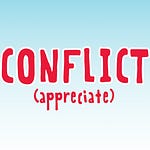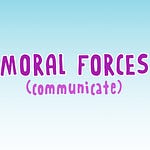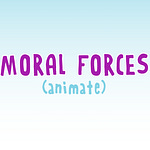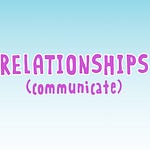Abbie: Hello and welcome to the CosmoParenting Podcast brought to you by the CMM Institute for Personal and Social Evolution. In this space, we invite you to see yourself as someone who is curious about and actively participating in creating your own meaning around parenting.
This is our ‘Animate’ episode, where we offer some strategies to integrate into parenting so you can bring to life the things we talk about here on the podcast. Let’s begin.
*music*
Abbie: I am joined once again by gifted educator Stephanie Higgs, to offer a best practice from a teacher’s perspective. Hello, Stephanie.
Stephanie: Hi, Abbie.
Abbie: Thanks so much for joining us again. Halfway through our year of podcasting! So exciting! We have spent this month discussing conflict. And I would love to know- and I’m sure everyone would as well- what’s the strategy you are offering us for this theme?
Stephanie: Ah! Abbie! I have so many ideas and strategies here. I think you and I grew up in a time where so many of us learned patterns of behavior that were conflict averse. And so, first and foremost, I want to stress that a generalization related to this theme of conflict is that conflict is inevitable. Another generalization is that conflict can lead to positive or negative outcomes. So, what I want to focus on today are a couple of bite sized strategies that will help us land on more of a middle ground or provide some resolution so that we learn to see that even though conflict is inevitable it can actually lead to productive outcomes. And we don’t have to be scared of it or run from it.
The first quick tip involves structuring an apology. I want to be super clear that a forced apology is meaningless. If a child does something, I think our natural instinct sometimes is to look at them and say, “Apologize!” However, if we are forcing them to do this it can be disingenuous and it kind of lacks sincerity. Instead, I really like to start by asking a child, upon reflection, if they would like to apologize. Now, if they are not quite ready to apologize, that is a different course of action, but oftentimes, they are remorseful and they want to rectify the situation. In that case, I coach children through a ‘Three Step Apology.’ Step one is saying “I’m sorry.” Step two is naming the situation by saying, “I’m sorry for … (whatever was done).” And step three is offering to make it right. And what this looks like depends on the kids’ age; if they are young I coach them on asking “how can I make this up to you?” If they are a little bit older, I encourage a bit of additional depth and I ask them to brainstorm some logical ways that they could try to extend an olive branch.
For example, if we think back to a child that is in conflict with their parents because they want a cell phone and their parents won’t let them, perhaps they lash out and say unkind words and make a big general statement commenting on the unfair conditions of their home, but upon reflection perhaps they realize tensions got a little bit too high. So an apology here could look like “I’m sorry that I yelled at you and said mean things. I’d love to make it up to you by sharing (and then this is going back to the relationship rewind from a previous month) my three or four or five favorite qualities about having you as a parent.”
And so we see the difference between “Say you’re sorry!” versus a more structured and support three step apology. The first doesn’t really feel genuine at all. Right, we’ve all been on the “sorry…” kind of end of things. And it doesn’t feel very genuine and it doesn’t feel that way to the person saying it nor does it feel that way to the receiver. But this is a whole different model. If the child is able to accept some responsibility, they’re really carrying the workload here and they’re going to work to go back and find some more comfortable middle ground.
Abbie: This is so important for children and adults alike to understand. And, like you said, I think we both (and probably a lot of people older than us) grew up in conflict averse contexts and so this is maybe hard for us to wrap our heads around. But this really resonates with me as someone who is oriented toward thinking about communication. The words we say matter and they have power to change a situation. And conflict is a great example of that.
The kind of unspoken other side of the coin when we talk about conflict though is the repair that has to come after it if you are interested in preserving that relationship with whoever you are in conflict with. This ‘Three Step Apology’ is a great move in the right direction when it comes to learning how to properly repair after conflict takes place. And again, this is one of those practices that is great at any level. It’s so cool to hear that you are teaching this in your classroom because this is something that I learned in my college-level communication classes. We also talked about this exact same ‘Three Step Apology,’ so I just don’t think it ever gets old and it’s relevant to everybody.
I’d also actually like to offer one other strategy today that has more to do with how we feel about conflict. Stephanie, I don’t know what it's like for you to enter conflict, but I tend to feel really anxious. Again, maybe that stems from this conflict averse culture that I grew up in. And it’s something I feel very physically in my body- and it’s taken me a long time to be able to kind of name that- but I now know that I can point out that my heart rate goes up or my palms get sweaty or I feel frozen or like I can’t think straight. So, for those of us who do freeze up when conflict arises, a helpful practice for me that I’d like to pass along is to engage in a ‘Body Scan.’ This is kind of a grounding practice. Because this just means we take stock of what is going on in our body in a given moment. And naming that can be really powerful in and of itself. So, for a long time, I knew that I panicked around conflict, but I didn’t have the language to describe all the things I was just able to now. For a body scan in conflict you can ask yourself questions like: What does it feel like in my body when I am in conflict? What can I do to calm myself? How can I refocus? How can I tend to my physical state in order to clear up my mental state? And, like all the practices we offer here, I think this is really great for both kids and adults.
Stephanie: I am so glad, Abbie, that you mentioned the ‘Body Scan’ because I’ve actually just learned that this year in therapy myself! And so, I think some of us have these practices kind of naturally built into our life and have for a long time, but like I said, I just learned about ‘Body Scans’ this year. And so I think a lot of us, even as adults, are still building kind of that regulation tool belt. And sort of developing our own practices when we are in a dysregulated state. The other thing that you mentioned that I heard a new term for last year was you mentioned that previously when you were experiencing conflict sometimes you would just kind of have like an emotional freeze. I learned that there is a term for that and it’s called “emotional flooding.” And so I used to always say that I would almost like black out.
Abbie: Yes!
Stephanie: Like my brain just couldn’t produce thoughts because I was feeling really heightened senses, really stressed out, and so I just learned that the term for that is considered emotional flooding and that is never going to be a time for those productive conversations because we are either kind of in flight or fright or freeze and I mean we are kind of all over the place there in terms of what emotions are coming to the surface. But the bottom line is they are flooding us, right. And picture, you know, kind of being underneath a wave that’s coming at us full force. And so I think taking that moment to pause to regulate ourselves before engaging in those discussions is going to lead to much more positive outcomes.
Abbie: Yes. Thank you for adding that. I appreciate that. And thanks for joining me today, Stephanie! And to everyone listening thanks for joining us as well. You can connect with Stephanie on Instagram @littlemissgifted and you can check out our other CosmoActivities and additional resources all for free at www.cosmoactivities.com. We are so grateful to be on this journey with you. And we will see you next week for the final episode of the month where we will talk communication on the theme of conflict.
*music*











Share this post